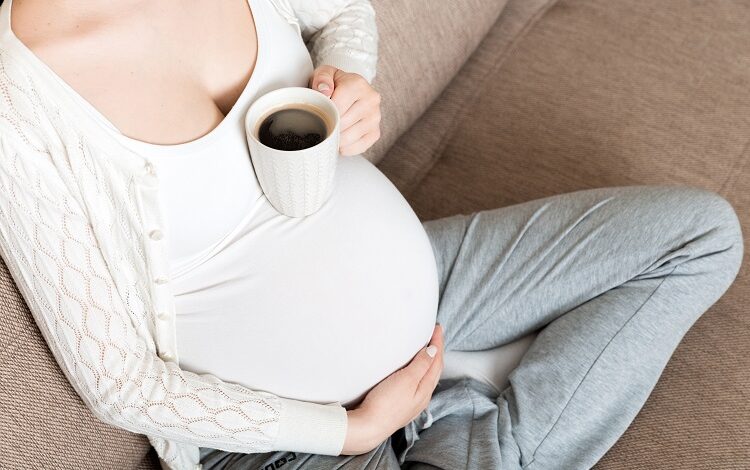Can coffee consumption during pregnancy affect development?

While there is no blanket advice against it, expectant mothers are often advised to limit their caffeine intake during pregnancy. For example, according to the UK’s National Health Service (NHS), they should limit their daily intake to 200mg. This is around two cups of instant coffee and one and a half cups of filter coffee.
A new study from the University of Queensland has explored whether a link exists between coffee consumption during pregnancy and neurodevelopmental difficulties in children.
Why is caffeine consumption during pregnancy considered dangerous?
According to the researchers, the physiological changes that take place during pregnancy prevents caffeine from breaking down easily, meaning that it can cross the placenta and reach the foetus, where the enzymes meant to metabolise it are poorly developed.
It has been suggested that the accumulation of caffeine metabolites there may poorly affect the developing foetal brain.
Previous studies on the matter have been inconsistent, with some suggesting a connection between caffeine and poor neurodevelopment, and some not. Furthermore, factors such as smoking and alcohol consumption are strongly associated with coffee consumption, and likely to confound the results. These factors may even be underreported, due to stigma, compared with coffee consumption, creating further lack of clarity.
These behaviours could even be linked genetically to neurodevelopmental or psychiatric traits in the mother, the study suggested, which could then be passed on to the child.
How did the researchers explore these connections?
In order to remove these confounders, the researchers used a technique called the Mendelian randomization (MR) method, which is able to trace causal links between caffeine consumption during pregnancy and offspring outcomes, after the discovery of genetic variants associated with coffee consumption and caffeine metabolites. These can be separated out from the affects of alcohol, cigarettes and poor diet.

The researchers leveraged the Norwegian Mother, Father and Child Cohort Study, which contains genotyped 46,245 mother-child duos. Using the database, they looked at the neurodevelopment of the children throughout early life, as well as their mothers’ coffee consumption before pregnancy and at weeks 15 and 22. To complement the observational studies, the researchers then did an MR analysis to ascertain whether the links found were causal.
Did the researchers find evidence that caffeine harms the baby?
Relying on observational studies alone, the researchers found strong association between maternal coffee consumption during pregnancy and neurodevelopmental difficulties in children. These included difficulties with communication and behavioural flexibility, hyperactive-impulsive behaviour and difficulties with attention, and language difficulties.
Adjusting these for education and income, as well as maternal smoking and alcohol consumption, nullified many of these trends. Effects remained for social communication and behavioural flexibility difficulties, as well as motor difficulties, at age three, and attention and hyperactive-impulsive behaviour at age five.
Following the MR analyses, the researchers found little evidence that coffee consumption during pregnancy led to neurodevelopmental difficulties. They did find that its association to social communication difficulties at age eight. However, when adjusted for confounding variables such as smoking, drinking and educational levels, they found negligible evidence of the link between maternal coffee consumption during pregnancy and neurodevelopmental problems.
One analysis did point to a causal relationship between coffee consumption during pregnancy and these social communication difficulties independently of smoking or alcohol consumption, but, the researchers suggested, as education was omitted from this analysis, that could be what drove the association.
Overall, the study concluded that there is ‘little evidence’ that coffee consumption by pregnant women is strongly associated with neurodevelopmental problems in their children. However, researchers advise pregnant mothers to continue following the guidelines.
Sourced From: Psychological Medicine
‘Mendelian randomization analysis of maternal coffee consumption during pregnancy on offspring neurodevelopmental difficulties in the Norwegian Mother, Father and Child Cohort Study (MoBa)’
Published on: 9 October 2024
Doi: https://doi.org/10.1017/S0033291724002216
Authors: S. D’Urso, R. E Wootton, H. Ask, C. Brito Nunes, O. A. Andreassen, L. Hwang, G. Moen, D. M. Evans, A. Havdahl



